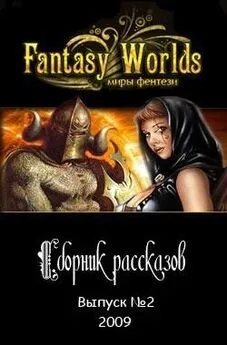Пользователь - WORLDS END
- Название:WORLDS END
- Автор:
- Жанр:
- Издательство:неизвестно
- Год:неизвестен
- ISBN:нет данных
- Рейтинг:
- Избранное:Добавить в избранное
-
Отзывы:
-
Ваша оценка:
Пользователь - WORLDS END краткое содержание
WORLDS END - читать онлайн бесплатно полную версию (весь текст целиком)
Интервал:
Закладка:
Arise, ye wretched of the earth;
For justice thunders condemnation, A better world's in birth.
33
Woe to the Conquered
I
THERE was another question which the Big Four had to settle, and which they kept putting off because it contained so much dynamite. The problem of money, astronomical sums of money, the biggest that had ever been talked about in the history of mankind. Who was going to pay for the rebuilding of northeastern France? If this peasant people had to do it out of its own savings, it would be crippled for a generation. The Germans had wrought the ruin - a great deal of it quite wanton, such as the cutting of vines and fruit trees. The French had set the cost of reparations at two hundred billion dollars, and thought they were generous when they reduced it to forty. The Americans were insisting that twelve billions was the maximum that could be paid.
What did it mean to talk about forty billion dollars? In what form would you collect it? There wasn't gold enough in the world; and if France took goods from Germany, that would make Germany the workshop of the world and condemn French industry to extinction.
This seemed obvious to an American expert; but you couldn't say it to a Frenchman, because he was suffering from a war psychosis. You couldn't say it to a politician, whether French or British, because he had got elected on the basis of making Germany pay. "Squeeze them until the pips squeak," had been the formula of the hustings, and one of Lloyd George's "savages," Premier Hughes of Australia, had come to the conference claiming that every mortgage placed on an Australian farm during the war was a part of the reparations bill. Privately Lloyd George would admit that Germany couldn't pay with goods; but then he would fly back to England and make a speech in Parliament saying that Germany should and would pay. The Prime Minister of Great Britain had Northcliffe riding on his back, a press lord who was slowly going insane, and revealing it in his newspapers by clamoring that the British armies should be demobilized and at the same time should march to Moscow. Lloyd George pictured the Peace Conference as trying to settle the world's problems "with stones crackling on the roof and crashing through the windows, and sometimes wild men screaming through the keyholes."
The time came when Clemenceau lost his temper and called Woodrow Wilson "pro-German" to his face. It may have been a coincidence, but right after that the President was struck down by influenza and retired to his bed under doctor's orders. When next he saw the Premier and the Prime Minister it was in his bedroom, and they had to be considerate of an invalid. Once more the fate of the world waited upon the elimination of toxins from the bloodstream of an elderly gentleman whose powers of resistance had been dangerously reduced.
Everybody quarreling with everybody else! General Pershing in a row with Foch, because he wouldn't obey Foch's orders as to the repression of the Germans on the Rhine; Americans wouldn't treat a beaten foe as the French demanded. The Marshal was in a row with his Premier, and Poincarй, President of France, was at outs with both. Wilson was snubbing his Secretary of State, who agreed with none of his policies, yet didn't choose to resign. There was open conflict with the Senate opposition, which now had couriers bringing news from Paris, because it didn't trust what President Wilson was telling the country. There were even rumors among the staff to the effect that a coolness was developing between Wilson and his Texas colonel. Had the latter made too many concessions? Had he taken too much authority? Some said yes and some said no, and the whispering gallery hummed, the beehive quivered with a buzz of gossip and suspicion.
II
The question of the blockade had narrowed down to this: was America willing to sell the Germans food on dubious credit, or would she insist on having some of the gold which the French claimed for theirs? A deadlock over the issue, while mothers hungered and babies died of rickets. The American government had guaranteed the farmers a war price for their food, and now the government had to have that price. At least, so the Republicans clamored - and they controlled the new Congress that was going to have no more nonsense about "idealism."
Lanny listened to controversies among members of the staff. What would our government do with the gold if we took it? Already we had an enormous store which we couldn't use. Alston insisted that when it came to a showdown the French wouldn't dare to take Germany's gold, because that would wreck the mark, and if the mark went, the franc would follow; the two currencies were tied together by the fact that French credits were based upon the hope of German reparations.
Lanny was finding out what a complicated world he lived in; he wished his father could be here to explain matters. But the father wrote that he expected to be busy at home for quite a while. Budd's had been forced to borrow money and convert some of the plants to making various goods, from hardware and kitchen utensils to sewing machines and hay rakes. For some reason Robbie considered this a great comedown. Incidentally he was in a fresh fury with President Wilson, who had failed to repudiate the British demand that increases in the American navy, already voted by Congress, should be canceled and abandoned.
Mrs. Emily hadn't heard again from "M. Dalcroze," and an invitation addressed to him in care of poste restante had been returned. Lanny said: "He must have gone back to Germany," and Beauty said: "Thank God!" But Lanny was only half convinced, and was troubled by imaginings of his friend in a French prison or a French grave.
One hint Lanny picked up. At luncheon the professors discussed the amazing change in the attitude of one of the great French dailies toward the subject of reparations and blockade. Actually, it appeared that light was beginning to dawn in French financial circles. A Paris newspaper pointing out editorially that Germany couldn't pay unless she acquired foreign exchange, and that to do this she had to manufacture something, and to do this she had to have raw materials! A miracle, said the hardheaded Professor Davisson - who ordinarily didn't believe in them.
Lanny got a copy of the paper, and did not fail to note that the publisher was the man with whom Kurt had been getting acquainted in Mrs. Emily's drawing room. Lanny hadn't forgotten what his father had told him concerning the method by which "miracles" were brought about in the journalistic world. Before the war the Russians had sent gold to Paris and paid cash for the support of French newspapers; and now the Germans were trying to buy mercy! Could it be that Kurt had moved into those higher regions where a man was safe from both police and military authorities?
III
One couldn't talk about such matters over the telephone, so Lanny went that afternoon to call upon his mother. He rode up in the lift unannounced and tapped on her door. "Who is it?" she called; and when he answered she opened the door cautiously, and after she had let him in, whispered: "Kurt is here!"
The German officer gave no sign until Beauty went to the door of the inner room and called him. When he emerged, Lanny saw that he had adopted fashionable afternoon garb, in which he looked handsome. He wore a little mustache, trimmed close in English fashion, and his straw-colored hair, which had been perhaps a quarter of an inch long when Lanny first met him at Hellerau, was now of a length suited to a musician. Kurt was pale, but easy in manner; if the life of a secret agent was wearing on his nerves, his friends were not going to be troubled with the fact. "I thought I owed it to you both to let you know I'm all right," he said to Lanny.
"Isn't it dangerous to come here, Kurt?"
"Things are all right with me so far as I know. Don't ask more."
The other held up the newspaper, saying: "I was bringing my mother a copy of this." There was a flash of the eyes between the two friends, but no more was said.
They seated themselves, and Kurt drew his chair close, so that he could speak in a low tone. He asked first what Lanny knew about the intentions of the Peace Conference regarding the district of Stubendorf; Lanny had to tell him the worst, that it was surely going to the Poles. Then Kurt wanted to know about the blockade; Lanny outlined different projects which were being discussed, and the attitude of various personalities he knew or knew about. Kurt repaid his friend by talking about developments in Germany, information which might be valuable to the Crillon staff.
This talk went on for quite a while. When there came a lull, Beauty remarked: "Kurt has told me something that I think you ought to know about, Lanny - his marriage."
"Marriage!" exclaimed Lanny, dumfounded. The smile went off the other's face.
Another of those tragic tales of love in wartime - amor inter arma. The affair had begun when Kurt lay in hospital after his second wounding, some pieces of his ribs torn out by a shell fragment.
"It was a small town near the eastern border," said the officer. "The front had shifted back and forth, so there was a lot of wreckage and suffering. The nurse who took care of me was about a year younger than I, a fine, straight girl - her father was a schoolteacher, and poor, so she had been obliged to work for her education. I'd got a touch of gangrene, so I had a long period of convalescence and saw a great deal of her, and we fell in love. You know how it is in wartime - "
Kurt was looking at Beauty, who nodded. Yes, she knew! Lanny said: "The same thing happened to Rick. Only it wasn't a nurse."
"Indeed! I must hear about that. Well, I was going back to duty and the time was short, so I married her. I didn't tell my parents, because, as you know, we pay a good deal of attention to social status in Germany, and my parents wouldn't have considered it a suitable match. My father was ill with influenza and my mother was under heavy strain, so I just sent my father's lawyer a sealed letter, to be opened in the event of my death, and I let the matter rest there until the war was over. Elsa wouldn't give up her duties as nurse, even though she was pregnant; and in the last weeks of the war she collapsed from undernourishment. So you see this blockade meant something personal to me."
Kurt stopped. His face was drawn, which made him look old; but he gave no other sign of emotion. "There wasn't enough food for anybody, unless it was speculators who broke the law. Elsa kept the truth from me, and the result was the baby was born dead, and she died of hemorrhages a few days later. So that's all there was to my marriage."
Beauty sat with a mist of tears in her eyes; and Lanny was thinking a familiar thought: "Oh, what a wicked thing is war!" He had lived through the agony of France with Marcel and his mother, and the agony of Britain with Rick and Nina; now in Germany it was the same. The younger man, thinking always of patching matters up between his two friends, remarked: "Nobody has gained anything, Kurt. Rick is crippled for life and is seldom out of pain. He crashed in a plane."
"Poor fellow!" said the other; but his voice sounded dull. "At least that was in a fight. His wife hasn't died of starvation, has she?"
"The British had their food restrictions, don't forget. Your submarine campaign was effective. Both sides were using whatever weapons they had. Now we're trying to make peace."
"What they call peace is to be just another kind of war. They are taking our ships and railroad stock, our horses and cattle, and saddling us with debts enough to last a century."
"We are trying to make a League of Nations," pleaded the American; "one that will guarantee the peace."
Читать дальшеИнтервал:
Закладка:




![Галина Романова - Лицензия на happy end [litres]](/books/1058996/galina-romanova-licenziya-na-happy-end-litres.webp)
